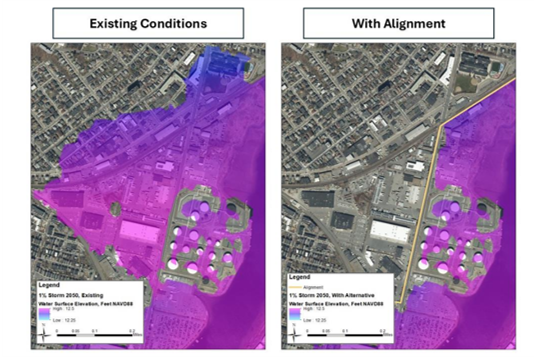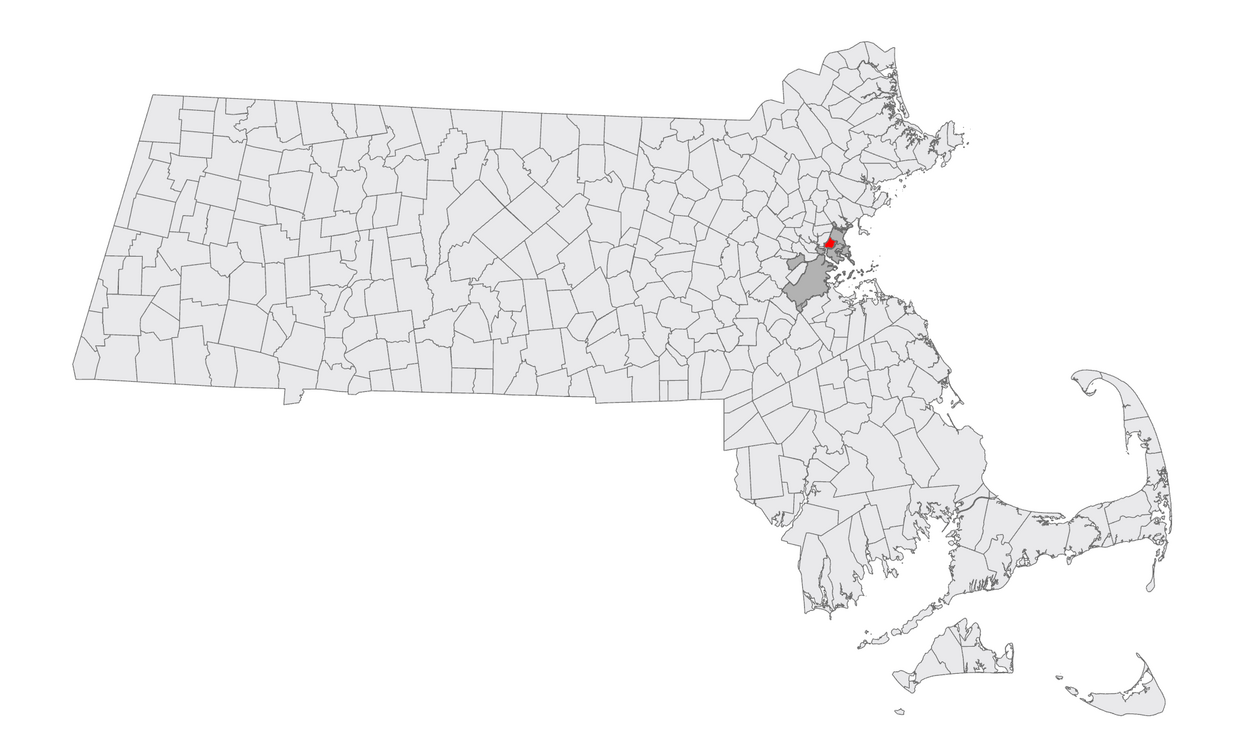Chelsea Overview
Chelsea is a city in Suffolk County, Massachusetts, in the Eastern part of the state. They have a population of 17,339 people and an area of 2.2 square miles. Climate hazards present in Chelsea include coastal flooding, extreme temperature, ecological changes, severe winter storms, tornadoes, and inland flooding.
Chelsea's Action Grant Projects
The MVP Action Grant provides funding to communities that want to take important steps to prepare for climate change, such as dealing with extreme weather, flooding, rising sea levels, and extreme heat.
Island End River Flood Resilience Project (FY20)
This project partnered with the city of Everett to develop a final design plan consisting of a coastal barrier, salt marsh restoration and expansion of public waterfront space for permitting and land acquisition along Island End River. This final design phase continued outreach to the environmental justice communities, key stakeholders and the broader community.
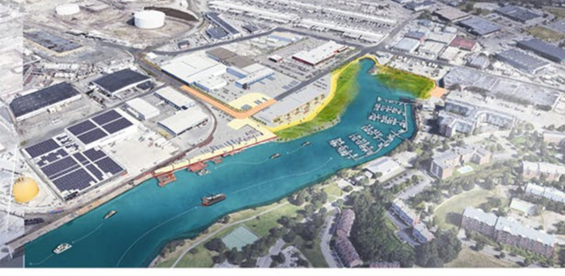
Urban Heat Island Mitigation Project (FY21)
The City of Chelsea advanced a citywide urban heat island mitigation initiative. This project complemented ongoing regional efforts by analyzing ambient air and land surface temperatures; performing a social vulnerability assessment; prioritizing corridors for public and private heat mitigation interventions; and devising and carrying out five pilot heat mitigation projects on public properties.
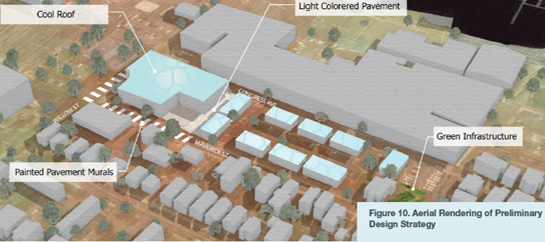
Battery Energy Storage and Solar at Chelsea City Hall (FY22)
The objectives of the project were (1) to increase resiliency in the face of climate-change-induced vulnerability to storms and flooding; (2) to eliminate fossil fuel use and reduce environmental impacts of both on-site and grid-based generation; and (3) to complete the municipal-buildings phase of the Chelsea Community Microgrid. Grant funds were be used for a battery energy storage system (BESS), solar power, energy efficiency, and green-fueling installations at the city hall and the 911 building.
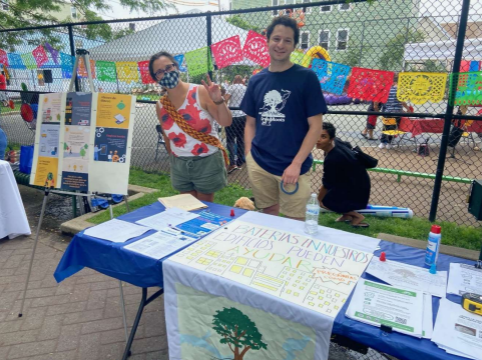
Equitable Coastal Resilience and Redevelopment in Lower Mystic (FY23)
The lower Mystic River portion of Boston Harbor is in the beginning stages of transformational waterfront redevelopment. At the same time, sea level rise and stronger storms require substantial public and private investments into coastal flood management. This project hosted a voluntary, professionally designed and mediated regional visioning process to bring together host municipalities, major landowners, community stakeholders, and philanthropists to develop a Memorandum of Agreement for waterfront redevelopment involving rigorous coastal resilience; connected, coordinated waterfront open space; equitable economic development; and other local and regional public benefits.
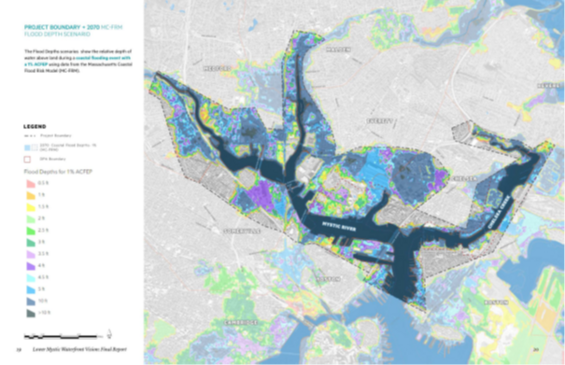
Envisioning Resilience in the North Suffolk Region through Community Preparedness (FY23)
Partnered with the cities of Revere and Winthrop this project explored models of community-based resilience to better support the broader community during climate emergencies and beyond. Through research both within and beyond the North Suffolk communities of Chelsea, Revere, and Winthrop, this project identified gaps in preparedness and communication and the needs and interests of local community-based organizations, and ultimately resulted in the creation of a plan for building a community-based resilience network in the region.

Eastern Ave. Alternatives Analysis + Conceptual Design (FY23)
This project created a long-term resilience vision for an active, changing waterfront neighborhood abutting Chelsea Creek along Eastern Avenue. The project performed an existing conditions assessment, completed a resilient visioning process with stakeholders, and developed design alternatives for three work zones. This provided the basis for subsequent design phases for construction in each work zone.
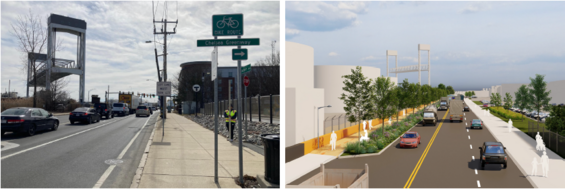
Heat Mitigation at Chelsea's Elementary Schools (FY24)
Chelsea seeks to pilot cooling measures in an identified heat island - the public sidewalks, plazas, and roads surrounding the Mary C. Burke Elementary School Complex, where all of Chelsea's public elementary school students attend school. After a year of planning and design in FY24, the city will implement outdoor cooling measures in FY25 along common walking routes to the elementary schools. This may include additional street trees, other shade structures, plantings and additional green space, and lighter pavement surface treatments. This project will also include a STEM education component to introduce Chelsea students to issues of climate change and urban heat in their community.
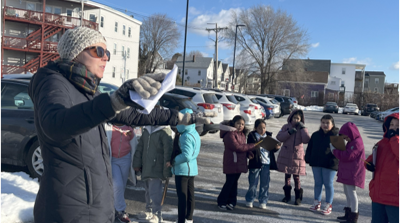
Advancing the Vision for a Resilient & Community Focused Eastern Avenue (FY24)
This project will continue Chelsea’s FY23 resilience study for Eastern Avenue by ground-truthing the proposed flood and heat mitigation solutions through a traffic study and performance modeling to better understand the effectiveness of proposed solutions. In addition, engagement with stakeholders, including property owners, the MBTA, and residents, will continue. The project will culminate in a schematic design of all proposed resilience measures.
